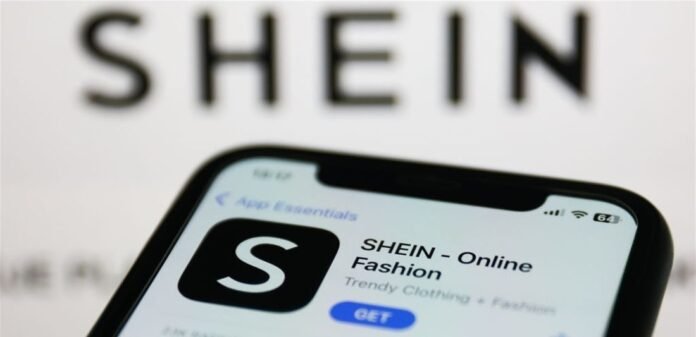Fashion has always been a powerful form of self-expression, showcasing our individuality and beliefs. In recent times, One particular clothing item has stirred up controversy and ignited intense debates – the Shein Palestine Flag T-shirt. This seemingly innocent piece of apparel has become an emblematic representation of a much larger issue: the ongoing Israeli-Palestinian conflict.
Whether you see it as a fashion statement or a political stand, there’s no denying the impact that Shein’s use of the Palestine flag on their clothing line has had. In this blog post, we’ll delve into the symbolism behind these garments, explore the contentious debate surrounding them, address ethical considerations for consumers, and examine the reactions to Shein’s controversial move.
Controversy Shein Palestine Flag T-shirt
The controversy surrounding Shein Palestine Flag T-shirt stems from the deeply rooted political conflict between Israel and Palestine. For many, this emblem represents a symbol of resistance against occupation and a call for recognition of Palestinian rights. However, others argue that the use of such symbols on clothing diminishes their significance and turns them into mere fashion trends.
Critics claim that by commodifying the Palestinian flag, Shein is profiting off the suffering of an oppressed people. They argue that wearing this shirt without fully understanding its historical and political implications is disrespectful to those affected by the conflict.
On the other hand, supporters view these shirts as a form of solidarity with Palestinians in their struggle for justice. They see it as an opportunity to raise awareness about the ongoing humanitarian crisis in occupied territories.
This controversy has sparked heated discussions across social media platforms, with passionate arguments on both sides. Some users applaud Shein for promoting dialogue and shedding light on important global issues through fashion, while others accuse them of exploiting sensitive topics for profit.
Shein Palestine Flag Apparel: A Fashion Statement or Political Stand?
When it comes to fashion, clothing has always been a powerful way for individuals to express themselves and make statements about their beliefs and values. The recent controversy surrounding Shein’s use of the Palestine flag on their apparel has sparked a debate about whether it is simply a fashion statement or a political stand.
For some, wearing the Palestine flag on clothing symbolizes solidarity with the Palestinian people and their struggle for self-determination. It serves as a reminder of the ongoing conflict in the region and raises awareness about human rights issues. These individuals see it as an act of resistance against oppression.
On the other hand, critics argue that using national symbols like flags for commercial purposes can be seen as disrespectful or even exploitative. They believe that such actions trivialize important political struggles and reduce them to mere fashion trends.
Regardless of where one stands on this debate, it is essential to understand the deeper implications behind Shein’s use of the Palestine flag on its products. Ethical considerations come into play when multinational corporations appropriate sensitive symbols without considering their historical and cultural significance.
The reaction to Shein Palestine flag apparel has been mixed. While some applaud the brand for bringing attention to an important cause, others condemn them for potentially profiting off someone else’s pain and suffering.
This controversy highlights how fashion can intersect with politics in unexpected ways. It raises questions about cultural appropriation, corporate responsibility, and consumer choices.
Shein Palestine Flag Clothing: Understanding the Debate
The controversy surrounding Shein Palestine flag clothing has ignited a heated debate among consumers, politicians, and human rights activists. On one hand, supporters argue that wearing these apparel items is a way to show solidarity with the Palestinian cause and raise awareness about their struggle for self-determination. They view it as a form of political expression and an opportunity for individuals to use fashion to make a statement.
On the other hand, critics argue that Shein’s use of the Palestine flag on its clothing is exploitative and trivializes the ongoing conflict in the region. They believe that turning such symbols into fashion trends can undermine the seriousness of political issues and reduce them to mere commodities. Additionally, there are concerns about whether Shein obtained proper authorization or permission from Palestinian authorities or organizations before using their national symbol.
This debate raises important questions about cultural appropriation, corporate responsibility, and ethical consumerism. Should companies like Shein be held accountable for how they use politically charged symbols? Is it appropriate for fashion brands to profit from sensitive political issues? These are complex topics that require thoughtful consideration.
Shein Palestine Flag Products: Ethical Considerations
Shein’s decision to release Palestine flag products has sparked intense debate and raised important ethical considerations. Many argue that wearing the Palestinian flag is a symbol of solidarity with the ongoing struggle for independence and justice in Palestine. Others, however, criticize Shein for profiting off of a political conflict by commodifying symbols of resistance.
Some people question whether Shein truly understands the historical and cultural significance of the Palestinian flag. They argue that using it as a fashion statement trivializes its meaning and reduces it to mere aesthetics. Additionally, there are concerns about cultural appropriation and whether Shein consulted with Palestinians or respected their input when designing these products.
Another key consideration is how these items are produced. Are they manufactured ethically? Do workers receive fair wages and proper working conditions? These questions remain unanswered, leaving consumers unsure about supporting Shein’s Palestine flag apparel.
Moreover, some individuals worry that by purchasing these products from an international fast-fashion retailer like Shein, they may inadvertently contribute to exploitative labor practices or environmental damage associated with this industry.
The controversy surrounding Shein Palestine flag illustrates the power dynamics inherent in global fashion brands capitalizing on political symbolism. It brings attention to larger issues such as cultural sensitivity, responsible production practices, and consumer choices based on individual values.
Shein Use of the Palestine Flag: Exploring the Reaction
The use of the Palestine flag by Shein, a popular online fashion retailer, has sparked intense debate and provoked strong reactions from customers and activists alike. The decision to incorporate this symbol into their clothing range has raised questions about cultural appropriation, political activism, and corporate responsibility.
On one hand, supporters argue that Shein’s inclusion of the Palestine flag on their apparel is a powerful form of solidarity with those affected by the Israeli-Palestinian conflict. They see it as an opportunity for people around the world to express their support for Palestinian rights and raise awareness about ongoing issues.
However, critics argue that Shein’s use of the Palestine flag is exploitative and insensitive. They believe that turning a political symbol into a fashion statement trivializes its significance and reduces it to mere decoration. Some also question whether Shein truly understands or respects the complex history behind this emblem.
The reaction to Shein Palestine flag products has been mixed. While some customers appreciate having access to clothing items that allow them to showcase their beliefs and support important causes, others feel uncomfortable with what they perceive as co-opting or commodifying an important symbol of resistance.
Furthermore, there are ethical considerations at play when discussing brands like Shein using politically charged symbols in their merchandise. Critics argue that companies should be held accountable for how they source materials, produce garments ethically, and ensure fair working conditions throughout their supply chain.
Whether you view Shein’s use of the Palestine flag as a positive gesture or problematic depends on your perspective. It highlights larger conversations surrounding cultural representation in fashion industry practices while shedding light on systemic injustices experienced by marginalized communities worldwide.
Conclusion
The controversy surrounding Shein Palestine flag on their clothing has sparked a heated debate among consumers, activists, and fashion enthusiasts alike. While some see it as a bold fashion statement or a symbol of solidarity with the Palestinian cause, others view it as exploitative and insensitive.
Regardless of one’s stance on the issue, it is essential to acknowledge that clothing can carry deep symbolic meaning and have far-reaching implications. The Palestine flag represents more than just a design; it embodies decades of struggle for justice and self-determination for Palestinians.
When considering purchasing Shein’s Palestine flag apparel or any other product that incorporates political symbols, ethical considerations come into play. Consumers may question whether companies are using these symbols purely for profit or genuinely supporting social causes.
It is crucial for brands like Shein to be transparent about their intentions when utilizing politically charged imagery in their products. This transparency allows customers to make informed decisions about whether they want to support such initiatives.
Furthermore, reactions to Shein’s use of the Palestine flag highlight the importance of understanding cultural sensitivity and historical context. By engaging in meaningful dialogue and educating ourselves about different perspectives, we can promote empathy and foster greater understanding within our global community.

